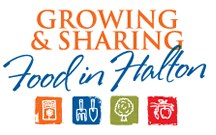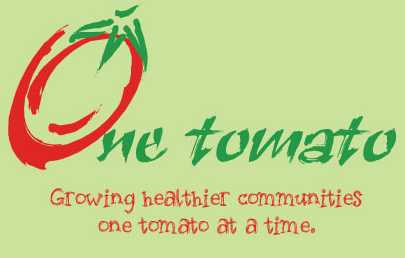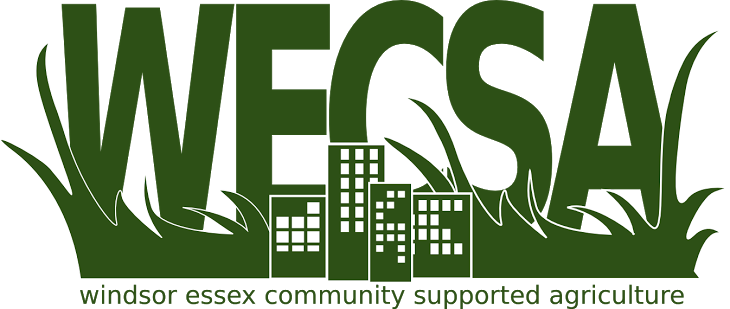Community Garden Network
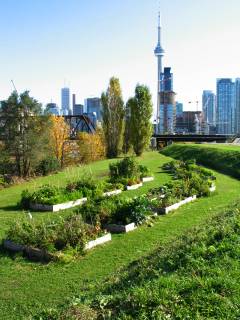 Connecting community garden leaders to share best practices, strategies and solutions.
Connecting community garden leaders to share best practices, strategies and solutions.
Sustain Ontario, in conjunction with Hamilton-Wentworth Green Venture and other partners, are working toward an Ontario-wide network for community gardens. This network first developed through e-mail conversations amongst various community garden network coordinators, when it was recognized that collaboration and the sharing of information between networks could be very advantageous. The first network meeting was at the 2012 Toronto Urban Agriculture Summit, where the potential benefits of a province-wide network were discussed and connections between people were formed.
The potential objectives of this provincial network are to:
– Identify common challenges and opportunities
– Share ‘success’ stories
– Influence community gardening policy at the provincial-level
– Share tools and resources with municipal staff and community groups
– Network and keep open channels of communication for support
– Source collaborative funding opportunities
We’re still looking for regional partners to be involved and provide input! For more information and to join our e-mailing list please contact: communitygardens@sustainontario.ca.
Check out our map of regional community garden networks!
View Community Gardens Ontario in a larger map
Check out the map of Equal Ground Community Gardens. Equal Grounds Community Gardens has been initiating community gardens throughout Brantford since 2009. They provide assistance and support to a vast network of community garden projects. They currently support and maintain a total of 33 active community gardens throughout the city including 12 garden sites found in neighbourhood parks and public spaces.
Working List of Community Garden Programs in Ontario
A B C D E F G H I J K L M N O P Q R S T U V W X Y Z
Albion Hills Community Farm
Algoma Food Network
Barrie Community Garden Program
Brockville Community Garden Network
Community Gardens Network Chatham-Kent
Durham Integrated Growers
Ecosource is all about changing the world, right in our own backyard! We are leaders in grassroots environmental education in the Region of Peel. Our staff works in schools and throughout the community, delivering interactive learning experiences that inspire youth and adults to take actions that make a huge difference to the health of the planet. We are proud to work with over 30,000 students and teachers in our waste education programs, over 1,000 students with the Peel Environmental Youth Alliance as well as over 3,000 youth and adults in our community-based organic gardening and stewardship programs each year!
We believe that when people realize how much impact their daily choices have on our environment, they will choose to become better environmental citizens. And we believe that most people are ready and willing to make those changes – they just need information and support. Our vision is to move public attitudes and perceptions about environmental issues toward responsible personal action, while inspiring personal accountability for the viability of the planet!
Location: Mississauga and Peel Region, Ontario
Contact: Carolyn Bailey – Associate Director
Number of Gardens: ~15
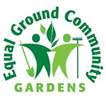 The Equal Ground Community Gardens mission is to promote healthy, sustainable, food secure communities through the support and creation of community gardens. Equal Grounds Community Gardens has been initiating community gardens throughout Brantford since 2009. They provide assistance and support to a vast network of community garden projects. They currently support and maintain a total of 33 active community gardens throughout the city including 12 garden sites found in neighbourhood parks and public spaces.
The Equal Ground Community Gardens mission is to promote healthy, sustainable, food secure communities through the support and creation of community gardens. Equal Grounds Community Gardens has been initiating community gardens throughout Brantford since 2009. They provide assistance and support to a vast network of community garden projects. They currently support and maintain a total of 33 active community gardens throughout the city including 12 garden sites found in neighbourhood parks and public spaces.
Equal Grounds Community Gardens increased its capacity in March 2015 by the merger of two existing groups with a similar goal of creating community gardens in our city. They promote local initiatives that recognize the importance, desire and need for residents to grow their own food, even in urban settings.
These gardens, maintained fully by community residents and volunteers, provide places for growing local, healthy and nutritious fruits and vegetables here in our city and neighbourhood parks.
Contact: EqualGroundCommunityGardens@gmail.com
Facebook / Twitter / Instagram
Urban agriculture is a great way to support community revitalization and the health of your neighbourhoods by improving access to fresh and healthy produce and developing food-related enterprises. Housing Services Corporation (HSC) supports the development of resident-led urban agriculture and food initiatives through Social and Environmental Enterprise Development (SEED).
Location: Ontario-Wide
Contact: Emily Martyn – Community Animation Program Lead
Number of Gardens: ~200
Number of Gardeners: 10 Housing Providers, 10 Gardeners, Larger Informal Network
Greening Sacred Spaces Halton
The Community Gardens Program is a new program that is now being implemented after a successful two year pilot project. Several volunteers at each test garden worked hard through flooding, droughts, dozens of meetings and hundreds of conversations and, many organizations made community garden dreams a reality by offering money, materials, seeds, plants, time and knowledge. The Community Garden pilots became a source of pride, exercise, friendship and of course fresh food. We look forward to neighbourhoods throughout the city reaping the benefits of community gardening.
Location: Guelph and Wellington County, Ontario
Contact: Kelly Guthrie – Community Engagement Coordinator
Number of Gardens: 12
T![]() he Haliburton Highlands Community Garden Network is a group of community gardens, garden projects, and community partners in the Haliburton Highlands working together to create and expand community gardens while learning from each other about growing and eating garden fresh foods.
he Haliburton Highlands Community Garden Network is a group of community gardens, garden projects, and community partners in the Haliburton Highlands working together to create and expand community gardens while learning from each other about growing and eating garden fresh foods.
Location: Haliburton County, Ontario
Contact: Megan Strong – Chair
Number of Gardens: 14
Number of Gardeners: 150
Much of Halton used to be fertile agricultural lands that have since been converted to suburban development. Through this Food in Halton project, it is our goal to increase the resilience of the local food system and the communities in Halton, through joint community activities and re-learning of food growing skills, harvesting and home-processing skills. There will be an initial focus on the Burlington-Oakville corridor as they are in greatest need of fresh, local produce. All of these initiatives support the recently adopted Halton Food Charter by the Halton Food Council .
Several municipalities, including Toronto, Guelph and Hamilton, have started fruit and vegetable gleaning programs that benefit the owner of the tree/crop, the volunteer pickers and a local food bank. As a result, this fresh produce is diverted from becoming waste while the pickers are getting outdoors, meeting neighbours and enjoying local food!
Location: Halton Region, Ontario
Contact: Melissa Tervit – Program Coordinator
Number of Gardens: 18
Number of Gardeners: 300
Kawartha Choice FarmFresh consists of a dynamic group of farmers, producers, chefs and retailers who promote and sell agricultural products grown and produced in the Kawartha Region.
The Kawartha Region has long been associated with producing world-class agricultural products. An abundance of clean air, fresh water, and rich farmland provide for products that rival the best in the world. From beef to buffalo, honey to maple syrup, or apples to sweet corn, the Kawartha Choice FarmFresh logo is your assurance of the quality and integrity of locally grown products.
The City of Kawartha Lakes is currently developing its community gardens policy and program through the municipality’s Food Action Plan.
Location: Kawartha Lakes, Ontario
Contact: Carlie Arbour – Agriculture and Food Programs Coordinator
Kingston Community Garden Network
London Community Gardens
Niagara Community Gardens
North Bay Community Garden Working Group
Orillia Community Gardens is a grassroots network of community gardens and gardeners. Our mission is to grow a sustainable and interconnected network of community gardens around the city.
Community gardens serve many important goals. Most importantly however in a time of increasing hunger, and a multidimensional food crisis, community gardens increase access to healthy sustainable food for all. These gardens beautify neighbourhoods and create habitat for biodiversity and rare food plants.
Since the Spring of 2009 Orillia Community Gardens has inspired or assisted in the co creation of over half a dozen community gardens in the Orillia area and many more around the world, like Midland and Finland!
Location: Orillia, Simcoe County, Ontario
Contact: Jacob
Community Gardens in Old Ottawa East
Community Gardening Network of Ottawa
Oshawa Community Gardens
One Tomato was inspired by the Victory Gardens of World War II. Victory Gardens were home-grown vegetable gardens promoted by the U.S. and Canadian governments during WWII. In 1943, in a radical act of war support, Eleanor Roosevelt had the front lawn of the White House ploughed up, and she planed a Victory Garden. This year, First Lady Michelle Obama has also planted a victory garden at the White House.
During the war, American gardeners grew about forty percent of the produce eaten in the U.S., all from plots planted in any available space including front lawns, vacant city lands, parks, and school yards.
Today, we have enough space to feed everyone, we just have to change green space to food space.
One Tomato was launched by Megan O’Neil and Darren Hakker on Earth Day in 2009 to encourage residents in Sarnia, Ontario to plant, grow and eat more vegetables, giving their extras to local food banks.
Location: Sarnia, Ontario
Contact: Darren Hakker – Co-founder and Media Director
Number of Gardens: ~10
Peterborough Community Garden Network
Seeds For Change (SFC) is a grass-roots community organization, partnered with the York Region Food Network (YRFN), a CRA registered charity, to create healthier neighbourhoods through school and community gardens.
SFC’s school gardens and outdoor classrooms encompass organic cultivation methods and food production. Our community gardens foster multicultural and intergenerational relationships. We are facilitating York Region’s anticipated exponential growth, creating environmentally sustainable communities with a social conscience, increasing volunteerism throughout the region and emphasizing the importance of “giving back”.
Location: York Region
Contact: Lynne Koss – Founder
Number of Gardens: 6
Number of Gardeners: 100
Stormont-Dundas-Glengarry Community Gardens Network

Location: Thunder Bay, Ontario
Contact: Catherine Schwartz Mendez – Public Health Nutritionist
Number of Gardens: 12
Number of Gardeners: 100
Toronto Community Garden Network
City of Toronto Community Gardens

Nestled in a village near Matheson Ontario with a population of 234, the Wahgoshig First Nation reserve encompasses 19, 239 acres; the north end meets the south shore of Abitibi Lake, which divides North Eastern Ontario from North Western Quebec. Accessible from Highway 101, the village occupies 70 hectares of flat land adjacent to Blueberry Lake. West of the village the land becomes a perfect habitat for moose, bears, grouse and other game.
Location: Black River/Matheson, Ontario
Contact: Elizabeth Babin
Number of Gardens: 22 and a 50′ greenhouse
Number of Gardeners: ?
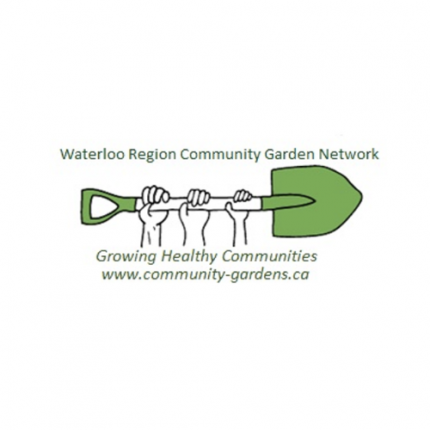
The Waterloo Region Community Garden Network (WRCGN) was formed in 2018. The Network is moving toward growing as much local food as possible by increasing the number of community gardens and expanding opportunities for those who want to grow food, to grow food. VISION: We envision a strong and supportive infrastructure enabling residents to have equitable access to opportunities to grow and harvest their own food in a sustainable manner. MISSION: WRCGN will promote and assist with the development and sustainability of community gardens throughout Waterloo Region for all those who wish to garden. WRCGN will function in ways that contribute to achieving the climate change goals of the Region and work from an equity, diversity, and inclusion lens.
Location: Region of Waterloo
Contact: Doug Jones, 519-404-3505
Number of Gardens: 98
Number of Gardeners: 1800
The Windsor-Essex Community Garden Collective provides residents with an opportunity to engage in a healthy recreational activity while growing nutritious food, benefiting from social interaction by meeting neighbours, and building community ties while learning about the growing cycle and beautifying public open space.
Location: Windsor-Essex County, Ontario
Contact: Steve Green – Network Coordinator
Number of Gardens: 15
Regional Municipality of York
Selected Resources
- Toronto Community Housing’s Community Gardening Manual
- Toronto Community Housing’s Community Gardening Resource Guide
- Region of Waterloo Public Health’s Community Garden Storytelling Project
- “Community Gardens: A Tool for Community Building” by Dena Warman
- “Benefits and Barriers to Implementing and Managing Well Rooted Community Gardens in Waterloo Region, Ontario” by Cheryl Dow
- “Success on the Ground: Case Studies of Urban Agriculture in a North American Context” by Noah Shumate
- “Community Garden Policy Scan, November 2013” Halton Food Council




